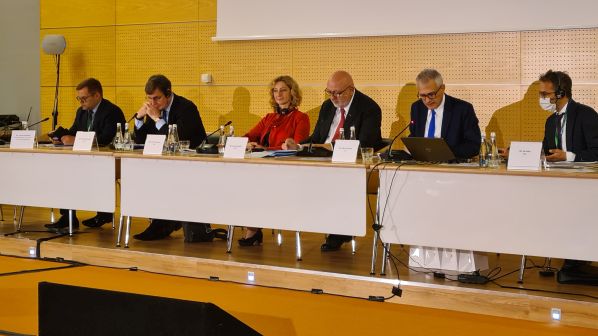THE Community of European Railway and Infrastructure Companies (CER) adopted the Women in Rail autonomous agreement during its 68th General Assembly on September 20, underlining members’ goals to promote more gender equality and diversity policies within their companies.
CER, which represents employers in the rail sector, and the European Transport Workers’ Federation (ETF), which represents rail sector employees, reached the provisional Women in Rail agreement on June 30 in the final round of negotiations at EU level for a binding agreement aimed at promoting employment of women in the sector.
The agreement is the first autonomous agreement at a European level on gender equality, and is also the first autonomous agreement in the railway sector for more than 15 years. It was also achieved during the Covid-19 pandemic, which necessitated the further challenge of virtual negotiations.
CER says the agreement is a major accomplishment which touches upon various policy areas and aspects of promoting women in the sector. This includes the recruitment process, female employee retention and promotion, and enabling women to access management.
The European Transport Workers’ Federation (ETF) representing railway workers will vote on the adoption of the text on October 27. If approved, CER and ETF will organise a celebratory signing ceremony with the support of the European Commission in November. The exact date is still to be confirmed.
“This is a particularly positive signal in the European Year of Rail and a strong sign for cooperation between the social partners,” says CER chair and CEO of Austrian Federal Railways (ÖBB), Mr Andreas Matthä. “The agreement takes up current challenges, sets ambitious goals and sets an example to other sectors. I am aware that the implementation will also pose challenges. However, the railway sector needs to act as a pioneer to safeguard the attractiveness of railways as an employer also for the future.”
“Of course it shouldn't matter whether you are a man or woman when you want to work in rail,” says Netherlands Railways (NS) CEO, Ms Marjan Rintel. “But to achieve just that, we sometimes need to reflect on the fact that more women are needed in the sector. The Women in Rail agreement is such a moment and that’s why I applaud it wholeheartedly.”
“CER is fully committed to this autonomous agreement, and I thank all our members, notably the delegation who helped draft the text for all their work,” says CER executive director, Mr Alberto Mazzola. “It shows what social dialogue at European level can achieve. This is a very good start, and we can be proud to be leading the way on this fundamental topic.”

